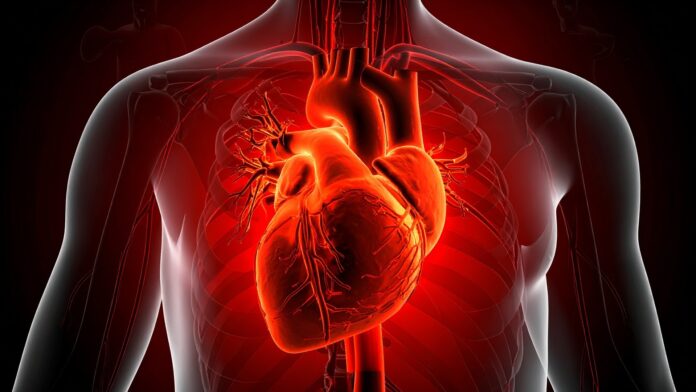New Delhi, Aug 28 (IANS) – Heart attacks, or myocardial infarctions, may not only be caused by cholesterol and artery blockage but can also be triggered by infectious diseases, according to a groundbreaking study that found dormant bacteria may play a crucial role in the condition.
The research, conducted by scientists from Finland and the UK, challenges the traditional understanding of how heart attacks develop and could open up new possibilities for treatment, diagnosis, and even vaccine development.
Professor Pekka Karhunen of Tampere University, Finland, who led the study, explained: “Until now, it was believed that coronary artery disease was initiated solely by oxidised low-density lipoprotein (LDL), recognised by the body as a foreign substance. While bacterial involvement has long been suspected, concrete evidence was lacking.”
The study, published in the Journal of the American Heart Association, revealed that atherosclerotic plaques — fatty deposits in arteries linked to coronary disease — may harbour biofilms formed by bacteria over years or even decades.
These dormant bacteria, encased in a protective biofilm, remain hidden from both the immune system and antibiotics. However, an external trigger such as a viral infection can reactivate them, causing bacterial proliferation and an intense inflammatory response.
This inflammation can rupture the plaque’s fibrous cap, leading to clot (thrombus) formation and ultimately a heart attack.
The researchers also detected DNA from several oral bacteria inside arterial plaques. By developing antibodies against these bacteria, they were able to reveal biofilm structures within arterial tissue. In cases of myocardial infarction, bacteria released from the biofilm were found to provoke immune responses that triggered dangerous inflammation and plaque rupture.
The findings suggest that bacterial activity may be a hidden but significant contributor to heart attacks. According to the team, the discovery could pave the way for novel diagnostic tools, innovative therapies, and even preventive vaccines against coronary artery disease and myocardial infarction.










